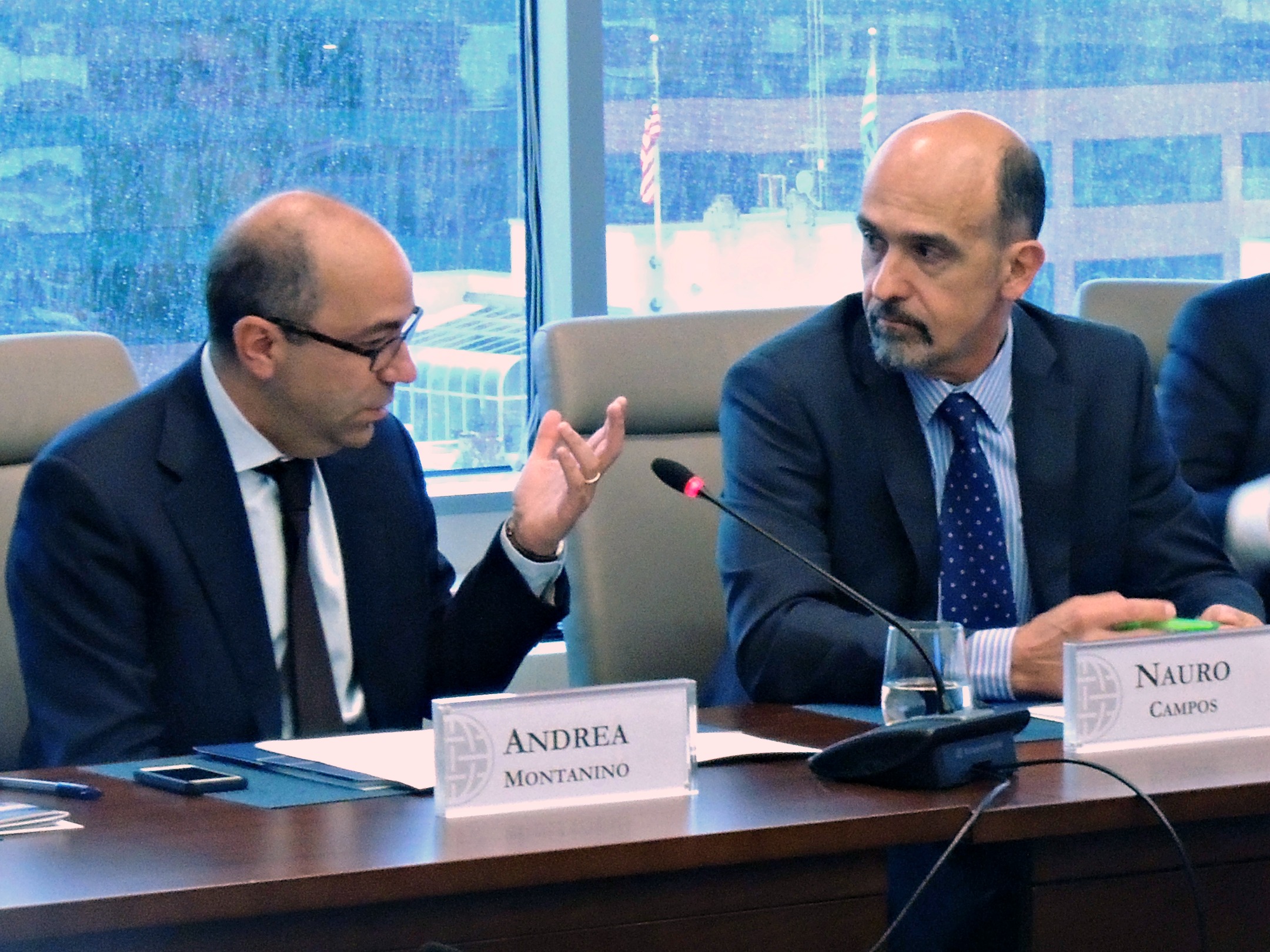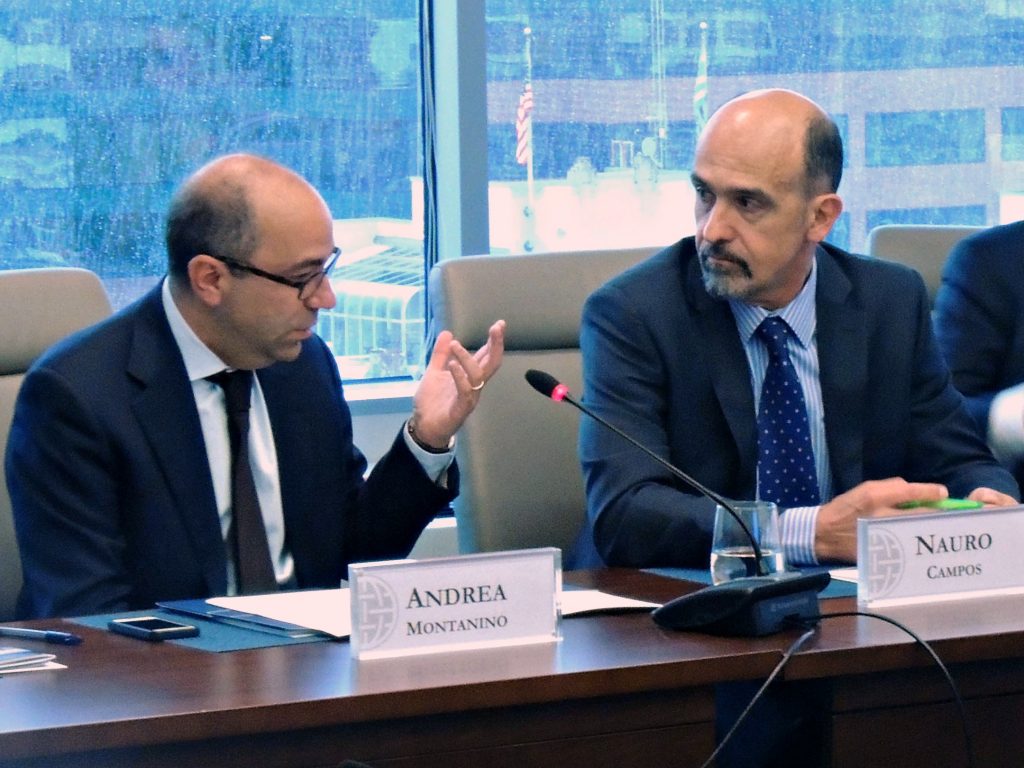
Andrea Montanino, Director of the Global Business & Economics Program discusses the findings of Professor Nauro Campos.
On May 17, the Atlantic Council Global Business & Economics Program hosted Professor Nauro Campos for an exclusive breakfast conversation with members from the private and public sector as well as International organizations. Mr. Campos, a cutting-edge researcher on Brexit who teaches economics and finance at Brunel University in London, discussed how EU membership has affected UK economic performance in the past and what detrimental economic consequences a Brexit could have for the United Kingdom.
| “It’s not about the price of EU membership, but about the value of EU membership.” – Nauro Campos, 2016 |
- The United Kingdom’s accession to the European Union in 1973 had a significant positive impact in the UK’s economy that is often mistaken as the result of Margaret Thatcher’s “Big Bang reforms”. In fact, the UK accession in 1973 contributing to the UK’s economic rebound, helping to attract FDI, and making London the financial capital of Europe.
- A Brexit might reignite the relative decline that the United Kingdom experienced before joining the European Union.
- The vast majority of economic studies, including data-based analyses by the UK Treasury and international organizations, show unequivocally that a Brexit would hurt the British economy.
- Polls remain tight: 43 percent “in”, 43 percent “out”, with 14 percent still indecisive. It will be instrumental to convince these 14 percent of the negative consequences that a Brexit could have for them personally, i.e. with regards to their job, their family, their pension.
- The economic arguments clearly back the “Bremain” option, but the electorate will also pay attention to the immigration aspects of the debate.
